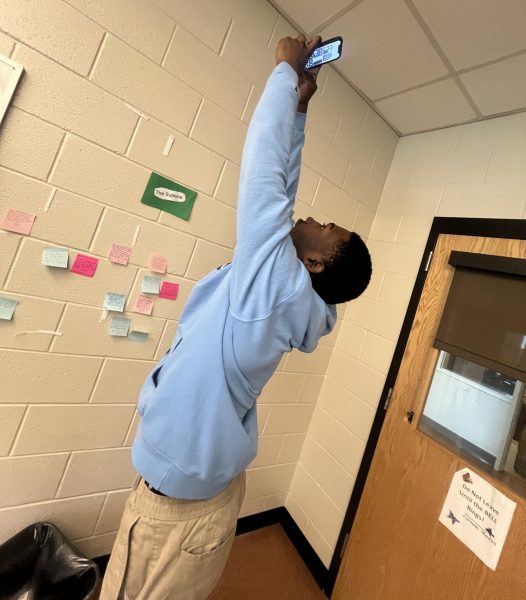The Problem with an All-Male Ethics Panel

While the freshmen, sophomores, and juniors were taking the PSAT on Wednesday, October 19th, the seniors convened in the Lecture Hall to listen to a panel about ethics in the workplace. Those on the panel represented a wide variety of professions: a coach for the Charleston Riverdogs, a lawyer, a Lieutenant Colonel of the U.S. military and president of the West Point Society of Charleston, a student at the Medical University of South Carolina and graduate of The Citadel, and a former journalist for the Washington Post and Newsweek. The discussion as a whole was very informative. The panelists discussed topics such as bioethics, steroid use, representing a known criminal, and assisted suicide. The seniors were very engaged in the second half of the discussion by having the opportunity to ask questions to the panelists. All of these panelists, however, were men.
At first, you might not see the problem with this line-up. Sure, the goal most likely was to represent diverse professions in order to discuss the importance of ethics in all types of occupations. But there are a variety of ethical dilemmas that require a woman’s point of view. For example, I would have liked to ask how should you approach sexual harassment in the workforce, if it meant risking your job? In other words, what should you do? These would have been great questions to address during the panel, especially one of our own presidential candidates recommends just quitting your job if something like this were to happen.
One of the seniors asked a very thought-provoking question towards the end of the discussion: What should a medical professional do if a minor required medical assistance but their parent or guardian would not allow it? Mr. Braye, the student at MUSC, discussed the complications regarding this issue and stated that if it is life-threatening, the medical professionals have the right to override the wishes of the parent or guardian. This question caused me to ponder a follow-up: what if a minor got pregnant and wanted to get an abortion and their parent or guardian would not approve? I would have liked a female’s perspective regarding the pro-choice aspect of a pregnant minor.
Overall, the topics discussed at the seminar were very informative and all of the seniors appreciated the ethical input from professionals in various fields. However, I, along with other senior girls, would have appreciated having a woman on the panel to address some questions and concerns that we have about ethics in the workforce. Hopefully, this change will be present at the 2017 senior seminar.















![Presidential Rizz [RANKED]](https://amhsnewspaper.com/wp-content/uploads/2024/03/jfk-600x338.jpg)
